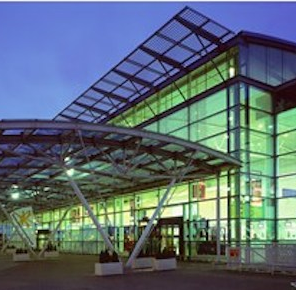
In conversation with Paul Butler, chief executive of the North East Automotive Alliance
We asked Paul for an update on the North East Automotive Alliance (NEAA) and what it can offer for businesses in our region.
For those who don’t already know, what is the NEAA ?
The NEAA is an industry-led cluster group established to support the sustainable economic growth and competitiveness of the region’s automotive sector.
It represents and works on behalf of the whole North East automotive sector; whether a company is making cars or components, off-highway or engine manufacture and associated supply chains. Members immediately benefit from the promotion of the North East automotive sector’s capabilities on regional, national and international levels and the network’s ability to connect the supply chain to business opportunities.
Member companies also benefit from leadership and the co-ordination of activities that have mutual benefit. The fact we offer a collaborative network is a compelling proposition for potential investors.
Although the NEAA was only established in March 2015, it is now the UK’s largest automotive cluster and has been benchmarked for cluster management excellence by the European Secretariat for Cluster Analysis.
What is your role and remit in the North East?
Our key objective is to support the sustainable economic growth and competitiveness of the sector in the region, and to overcome barriers to growth by providing:
- A network to benchmark, sharing best practice and tackling common issues
- Access to business excellence, skills and training
- Drive innovation and adoption of new technologies and processes
- A focal point for collaborative projects and access to funding
- A voice for the sector and interface with Government bodies
- Promotion of the sector regionally, nationally and internationally
- Regionally and nationally aligned strategic objectives, including growth, productivity, digitalisation, supply chain development and innovation and R&D, to name but a few.
You’ve recently signed up your 200th supporter to the NEAA cluster. What makes this landmark so significant?
The NEAA only launched in March 2015 and to have signed up our 200th company participant in such a short space of time is a remarkable achievement. It’s a testament to the value and opportunities we provide our members.
Today the NEAA is the largest automotive cluster in the UK and one of, if not the, fastest growing cluster across Europe. Having such a critical mass makes the NEAA a true representative of the North East automotive sector.
Our research indicates there are approximately 240 companies in the direct supply chain, excluding the excellent services sector companies that support the wider automotive sector. We expect to see NEAA’s membership continue to grow in the future.
What are your ambitions for the NEAA?
In the coming years I can see significant growth opportunities. The recent Nissan announcement (the new Qashqai and the X-Trail SUV will be built at the Sunderland plant) and developments such as the International Advanced Manufacturing Park (IAMP) will build on current strengths. We have a world-class workforce and our great transport links to the rest of the UK and Europe mean the North East is a prime location for automotive investment in the UK.
We must also build on our emerging technology strengths. The North East is a leader in the electric vehicle industry and connected and autonomous vehicles, which account for 26% of all Electric Vehicle production across Europe. We are also the only region in the UK where connected vehicles and infrastructure trials are taking place for intelligent traffic management. We are advanced in terms of battery technology, control systems and EV charging networks thanks to continued investment and funding to support these developments here in the North East.
Ultimately our key ambition is to continue to service our members and, through industry leadership, ensure the North East is ready to exploit these growth opportunities for the benefit of the region as a whole.
What can we do to ensure the sector continues to grow?
We must create the right environment to ensure industry receives the necessary support to meet these future growth challenges.
It requires a close collaborative approach from industry, regional and national government, academia and other business support organisations to make it easy for companies to access support in a co-ordinated way.
It will require a step change in the current business support framework, however there is a desire to make this happen. We must look to best practice and learn from our counterparts from across Europe to develop this eco-system.
How is innovation changing the North East’s automotive sector?
The pace of innovation in the automotive sector is unprecedented – both in vehicles themselves and within the factories producing them.
Environmental concerns, such as climate change and city air quality; safety and congestion pressures; and changing customer tastes and model integration, are driving change within vehicles.
The hybridisation of engines and the electric car market is gathering pace but there is still a long way to go. The future is all about developing the range of vehicles so drivers can travel further and charge faster. Lighter cars and bigger batteries are coming. Faster charging is under development too.
Hybrid technologies are also strong in the off highway sector. Komatsu UK recently demonstrated its new hybrid HB365LC excavator at the North East Automotive Expo – a first showing in the UK.
We will also see significant developments around connected and autonomous vehicles. This technology will significantly change the way we interact with our vehicles. Autonomous driving, infotainment, preventative maintenance, modal integration, ride sharing, vehicle communications (with smart infrastructure to improve routing), traffic flow and cyber security are just some of the areas where we can expect change. The expansion of vehicle choices and increased personalisation will bring its own challenges and opportunities for more localised content.
Innovation within the manufacturing process is also a top priority for the sector. The NEAA is supporting members on developments in the factory of the future, including actively looking at Industry 4.0. and how this impacts manufacturing processes. We are currently working with key stakeholders to see how we can further support this area – so watch this space.
How can people support the work of the NEAA?
In order to deliver our vision statement and support the sustainable economic growth and competitiveness of the automotive sector, we need to work with the sector as a whole.
I would say if your company is involved in the direct automotive supply chain or has the propensity to supply the sector then we’d love to hear from you. We’re particularly interested in hearing from SMEs based in the North East LEP region as we have an ERDF funded programme to support the growth and expansion of eligible businesses.
Together we are stronger. To quote Aristotle, ‘the whole is greater than the sum of its parts.’








